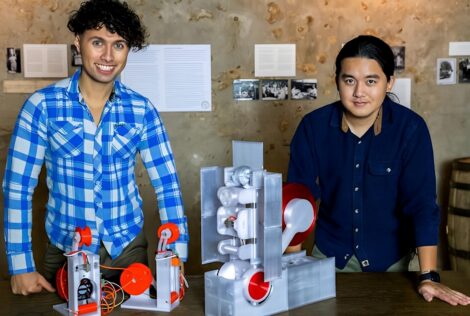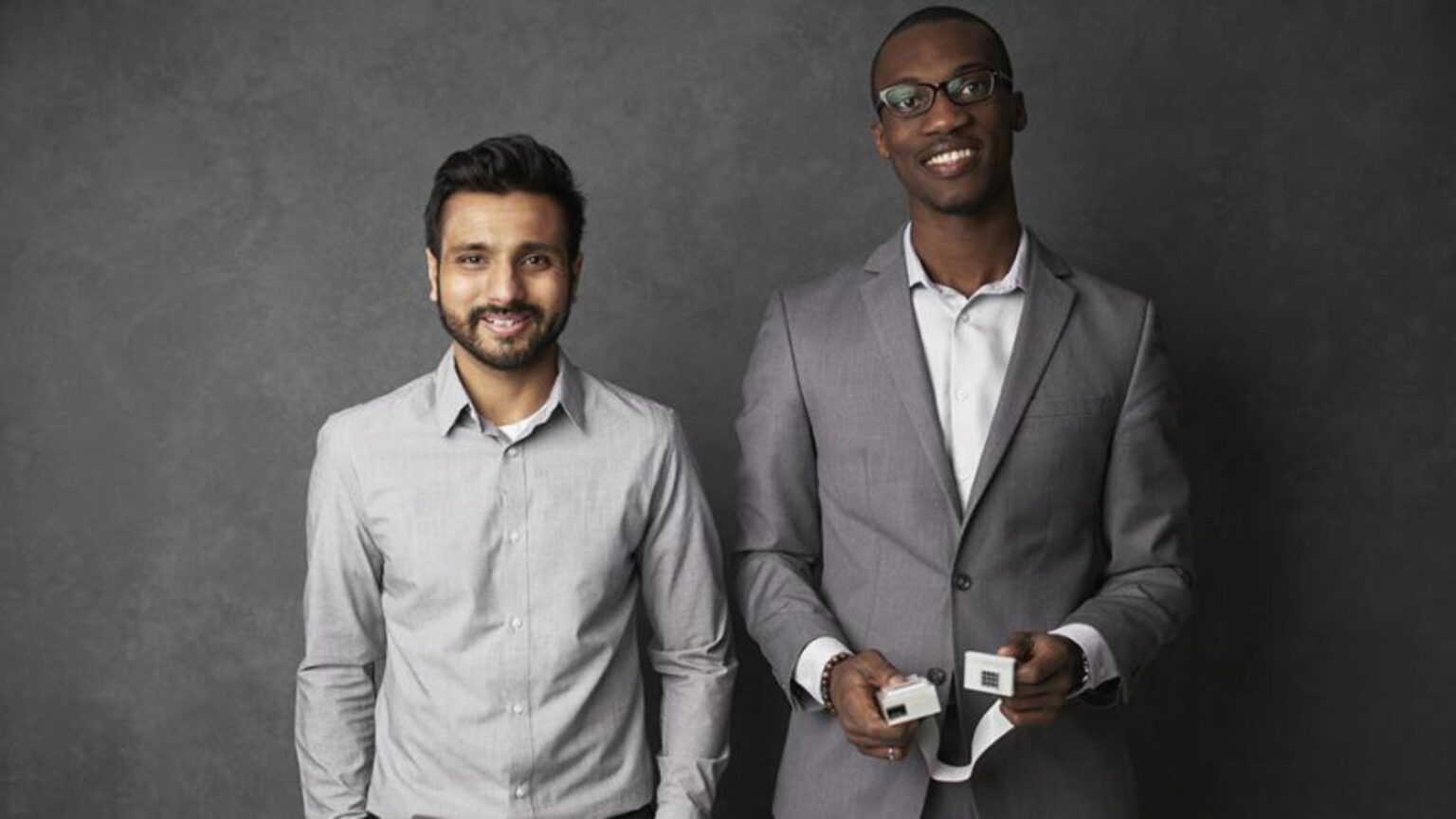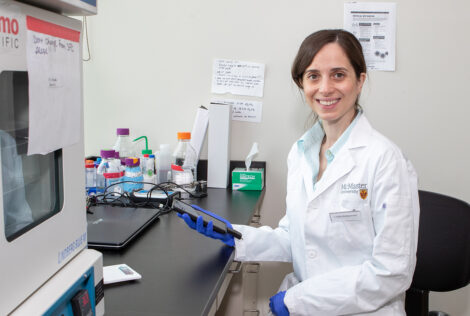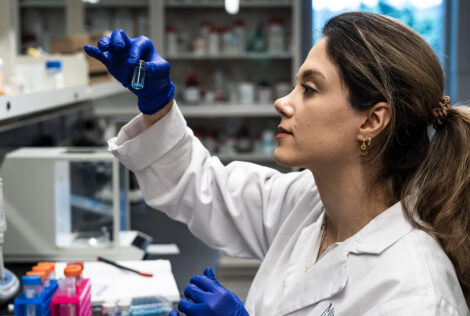

Just as Michael Takla, Rotimi Fadiya, Prateek Mathur and Shivad Bhavsar were starting to explore the real world, settling into new homes in Toronto and Vancouver and getting accustomed to their lives as engineers, they received news that would change their lives.
This past November the graduates of McMaster’s Electrical and Biomedical Engineering program received the prestigious international James Dyson Award and $50K to support the development of the sKan, the team’s skin cancer detection device.
What started as a final engineering class project is now an internationally recognized improved solution for the early detection of melanoma, the most dangerous form of skin cancer. The sKan assists physicians and the average person in detecting melanoma by creating a thermal map on the region of interest on the skin.
News of the award travelled around the world and was featured in more than 150 publications, including The Guardian, CBC National, Toronto Star, and BBC News and went viral on social media with hundreds of posts.
“While Rotimi and I were walking through downtown Toronto were stopped by a woman who asked for our picture because she saw us on the news,” Takla says. “Every five minutes that day we found another article, journal, tweet or Facebook post that mentioned something about us. It was crazy.”
Now that the dust has settled, the team is juggling full-time careers during the week and the development of the sKan on evenings and weekends. They have just filed for a provisional patent and are working on building connections with physicians to test the device.
Fadiya, who is currently based in Toronto working as a management consulting analyst at Accenture, says the group is taking it one step at a time.
“It’s easy to get caught up in the buzz. I think our approach goes against what would be considered the typical entrepreneurial mind-set, which is to throw all caution to the wind and jump in head first.”
Thinking differently has served the team well since they first started brainstorming ideas for their capstone project.
“At first, we had safe ideas we were comfortable with,” says Fadiya. “We could see end to end what they would look like. The sKan wasn’t one of those ideas. But we just felt it was worth pursuing despite the fact that it was going to be challenging and we weren’t quite sure what would come of it.”
Solving a big problem with a novel solution is what set this idea apart from the others.
“We found research that used the thermal properties of cancerous skin tissue as a means of detecting melanoma,” explains Mathur. “However, this was done using expensive lab equipment. We set out to apply the research and invent a way of performing the same assessment using a more cost-effective solution.”
It was a small project milestone that made the team realize their idea was big. When they first tested the device’s thermistors, temperature-sensitive components that look for areas of temperature difference on the skin, they marvelled at a wave on their screen that indicated a change in temperature.
“It was a little bit of validation that showed us it worked,” says Bhavsar.
As the team continues to develop the sKan, they’re learning that it’s more than just about engineering a great design. To reach their ultimate goal of having the sKan in every family physician’s office, it’s also about building relationships.
“We need to gain physicians’ trust, connect with people who have built biomedical startups and learn the business development side of things,” adds Fadiya. “You need to grow all of these elements at the same time to be successful.”


